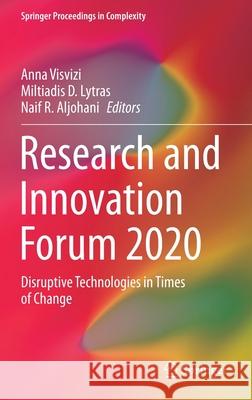Research and Innovation Forum 2020: Disruptive Technologies in Times of Change » książka
topmenu
Research and Innovation Forum 2020: Disruptive Technologies in Times of Change
ISBN-13: 9783030620653 / Angielski / Twarda / 2021 / 677 str.
Research and Innovation Forum 2020: Disruptive Technologies in Times of Change
ISBN-13: 9783030620653 / Angielski / Twarda / 2021 / 677 str.
cena 603,81
(netto: 575,06 VAT: 5%)
Najniższa cena z 30 dni: 578,30
(netto: 575,06 VAT: 5%)
Najniższa cena z 30 dni: 578,30
Termin realizacji zamówienia:
ok. 16-18 dni roboczych.
ok. 16-18 dni roboczych.
Darmowa dostawa!
Kategorie:
Kategorie BISAC:
Wydawca:
Springer
Seria wydawnicza:
Język:
Angielski
ISBN-13:
9783030620653
Rok wydania:
2021
Wydanie:
2021
Numer serii:
000463532
Ilość stron:
677
Waga:
1.14 kg
Wymiary:
23.39 x 15.6 x 3.81
Oprawa:
Twarda
Wolumenów:
01
Dodatkowe informacje:
Wydanie ilustrowane











